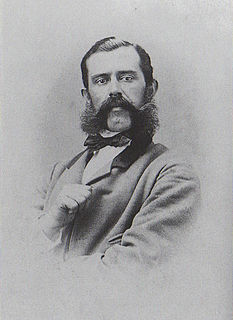| Časlav | |
|---|---|
| Pronunciation | [ˈtʃaslaʋ] |
| Gender | male |
| Language(s) | Slavic |
| Origin | |
| Language(s) | Slavic |
| Derivation | ča- + slav[a] |
| Meaning | "to await" + "glory" |
| Region of origin | Slavic |
| Other names | |
| Variant form(s) | Čáslav, Čéslav, Czasław, Czesław |
Časlav is a Slavic given name, which has several spelling variants: Časlav (Cyrillic: Часлав) in Serbian, Čáslav or Čéslav in Czech, and Czasław or Czesław in Polish. In medieval Greek texts, the name is spelled as Τζασϑλάβος. The name consists of two elements, ča and slav. The element ča is a Slavic root meaning "to await" or "to look forward to", expressing the idea that the child is an eagerly awaited gift. The element slav is very common in Slavic anthroponyms. It comes from slava "glory", and has the sense of "good name" in the given names. [1] [2]

Slavs are an Indo-European ethno-linguistic group who speak the various Slavic languages of the larger Balto-Slavic linguistic group. They are native to Eurasia, stretching from Central, Eastern, and Southeastern Europe all the way north and eastwards to Northeast Europe, Northern Asia (Siberia), the Caucasus, and Central Asia as well as historically in Western Europe and Western Asia. From the early 6th century they spread to inhabit the majority of Central, Eastern and Southeastern Europe. Today, there is a large Slavic diaspora throughout North America, particularly in the United States and Canada as a result of immigration.

Serbian is the standardized variety of the Serbo-Croatian language mainly used by Serbs. It is the official language of Serbia, the territory of Kosovo, and one of the three official languages of Bosnia and Herzegovina. In addition, it is a recognized minority language in Montenegro where it is spoken by the relative majority of the population, as well as in Croatia, North Macedonia, Romania, Hungary, Slovakia, and the Czech Republic.

Czech, historically also Bohemian, is a West Slavic language of the Czech–Slovak group. Spoken by over 10 million people, it serves as the official language of the Czech Republic. Czech is closely related to Slovak, to the point of mutual intelligibility to a very high degree. Like other Slavic languages, Czech is a fusional language with a rich system of morphology and relatively flexible word order. Its vocabulary has been extensively influenced by Latin and German.
Notable people named Časlav:
- Časlav Klonimirović, ruler of Serbia (927–960)
- Časlav Đorđević, Serbian writer

Serbia in the Middle Ages refers to the medieval period in the history of Serbia. The period begins in the 6th century with the Slavic migrations to Southeastern Europe, and lasts until the Ottoman conquest of Serbian lands in the second half of the 15th century. The period is also extended to 1537, when Pavle Bakić, the last titular Despot of Serbia in Hungarian exile, fell in the Battle of Gorjani.
Časlav Đorđević is a Serbian writer and a member of the Association of Writers of Serbia. He has written literary critiques and essays, and compiled anthologies of Serbian poetry. He is the author of two books of poetry, and a contributor to literary journals.





